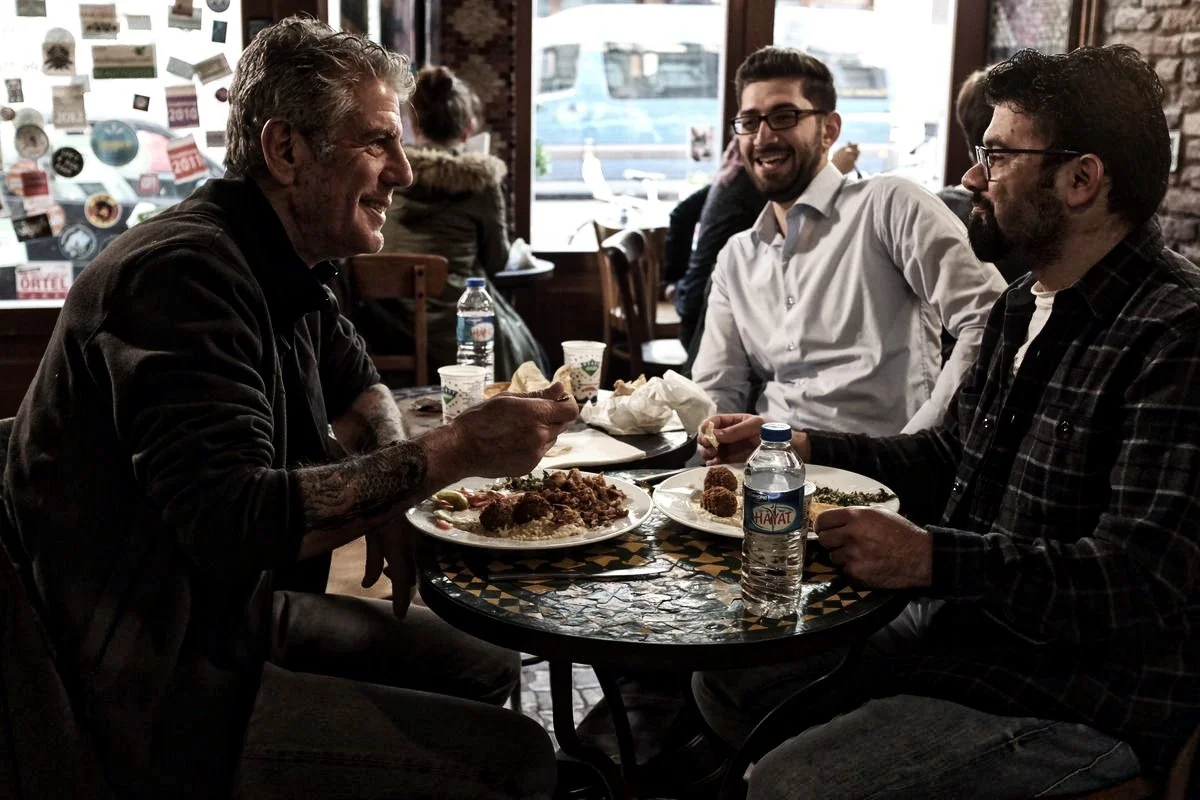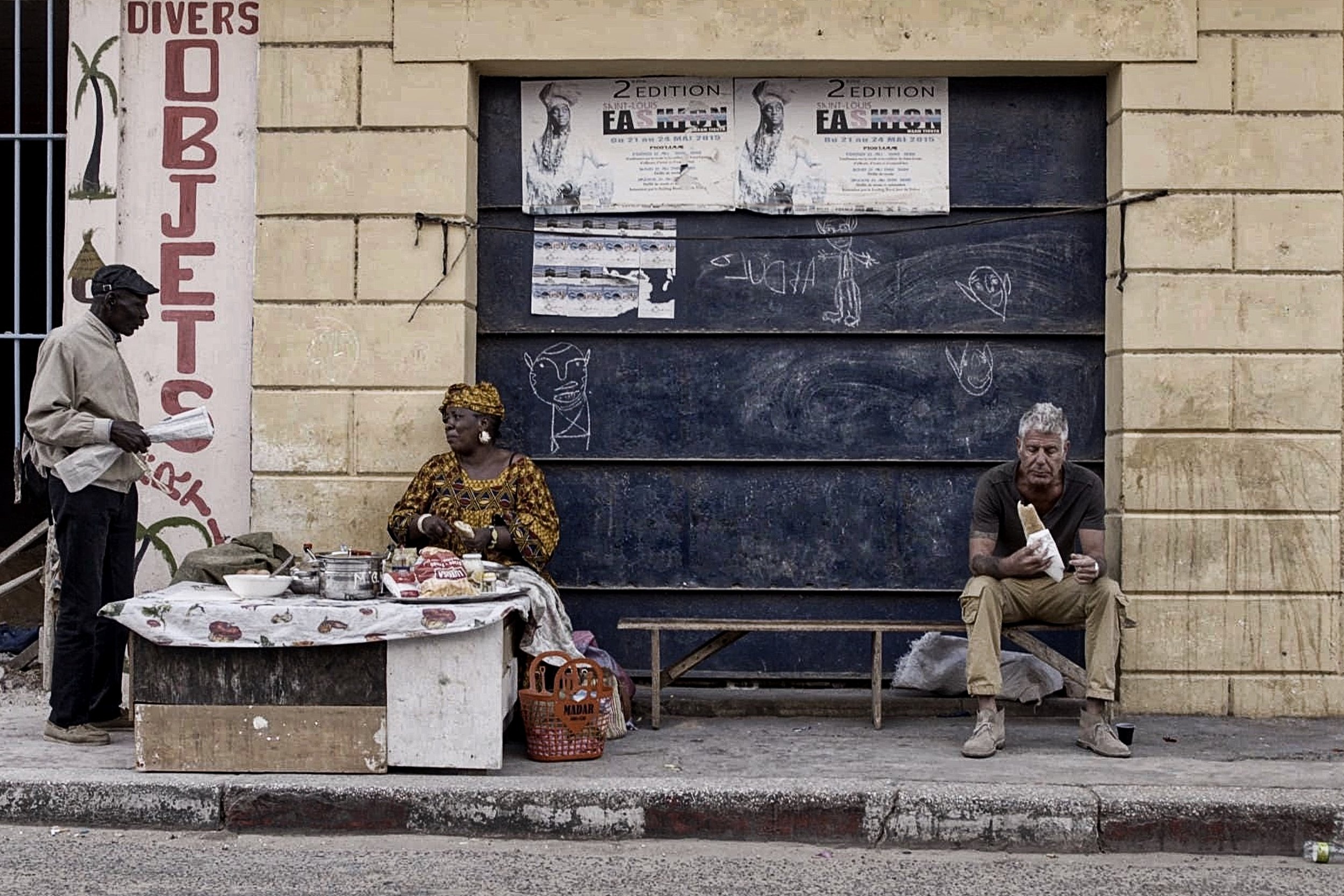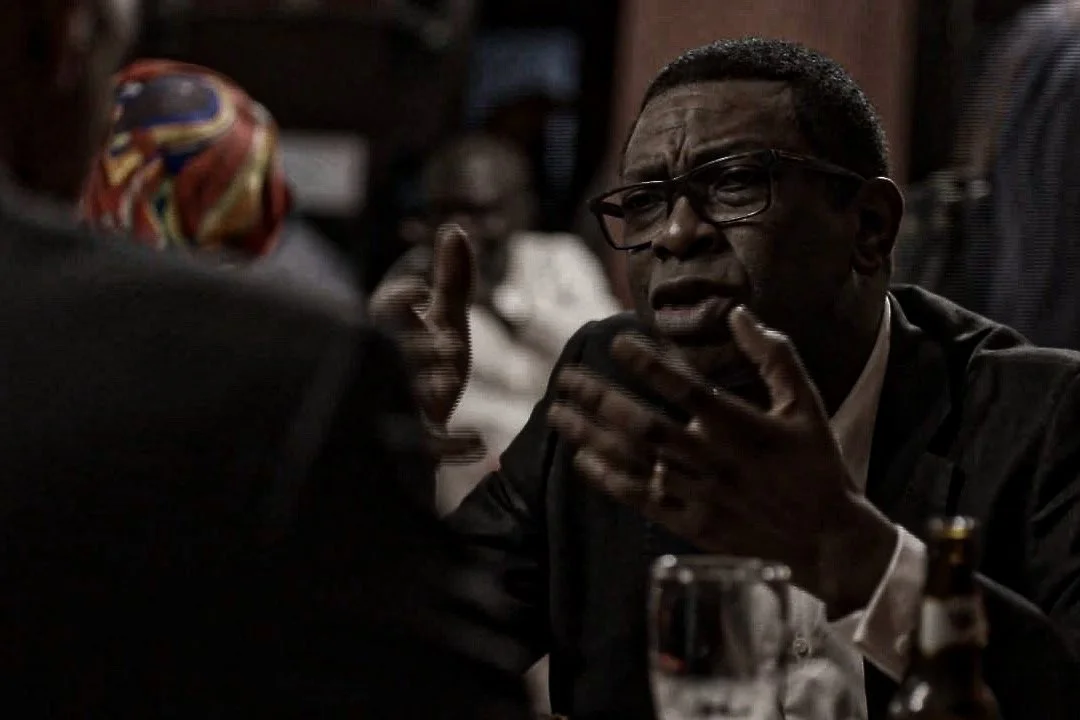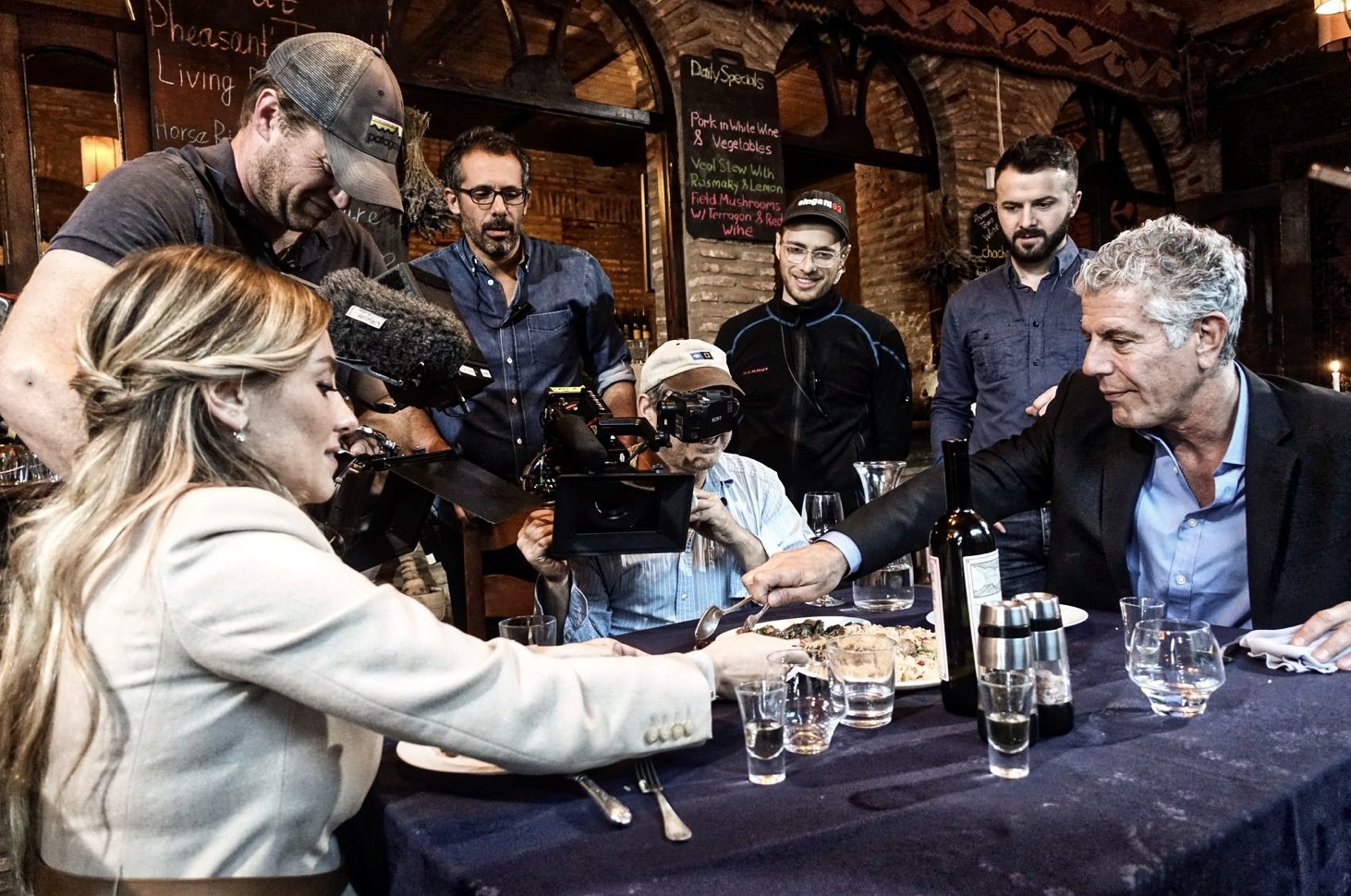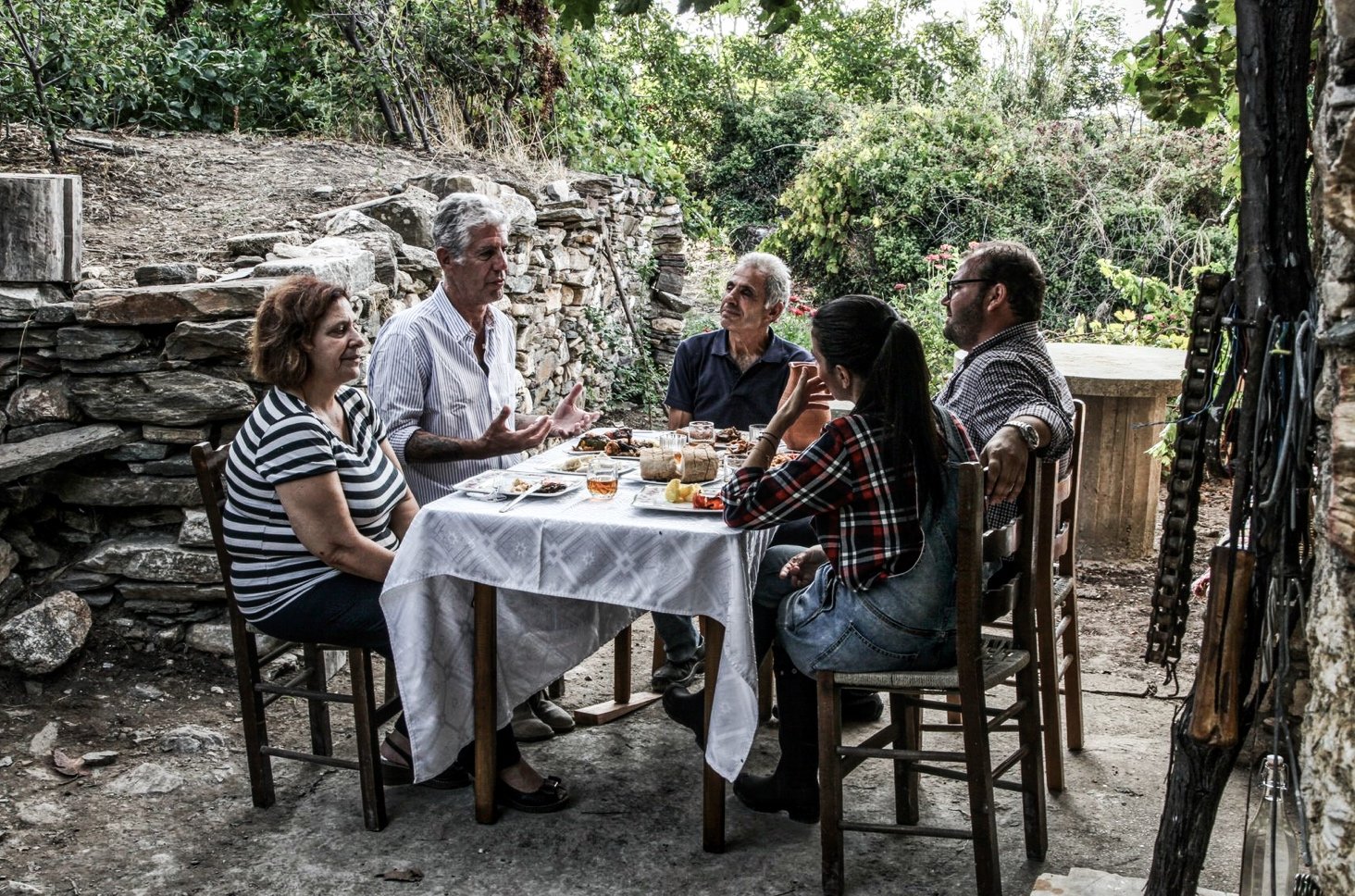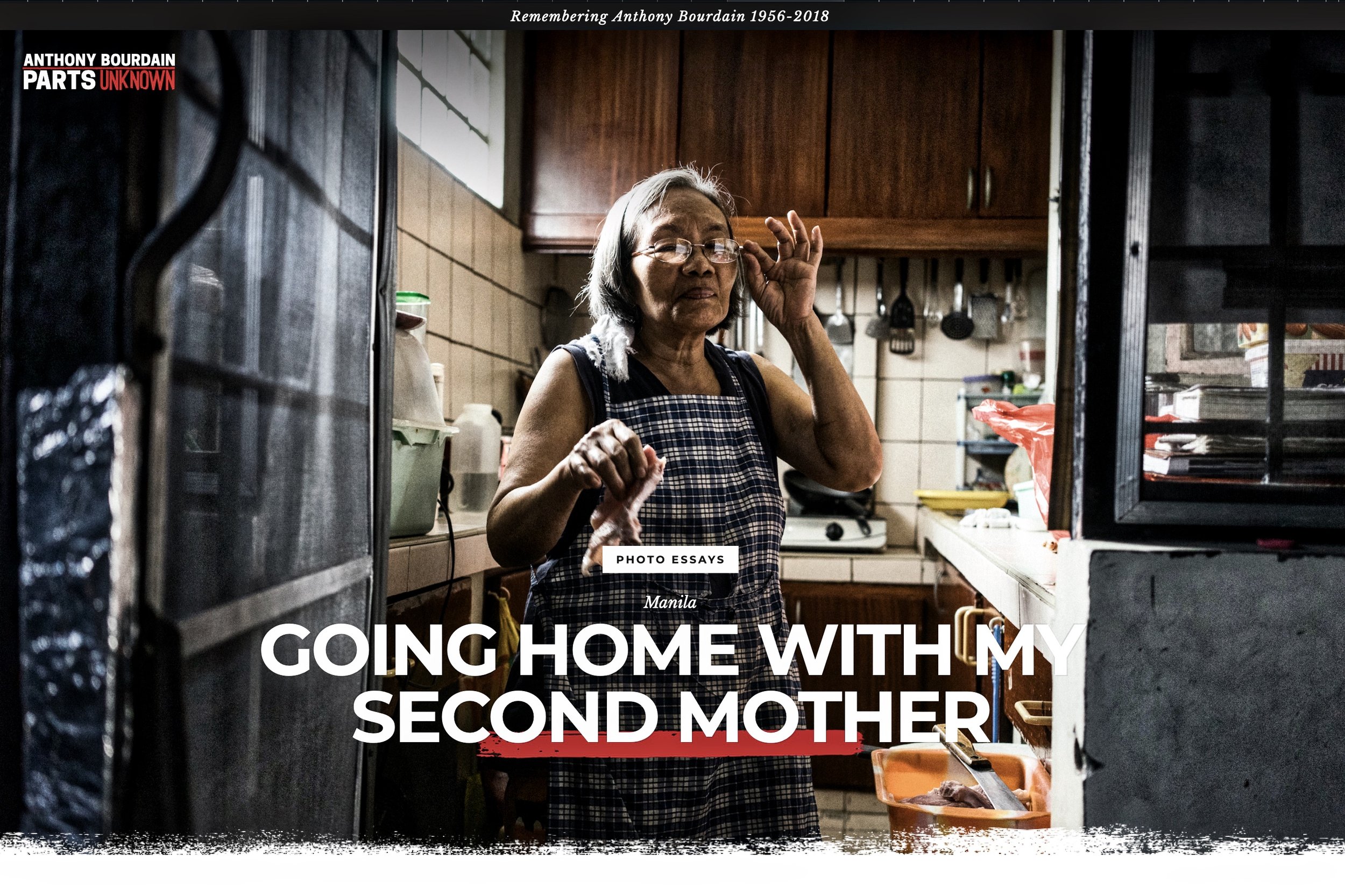A conversation over schnitzel and Kölsch: This was Tony Bourdain on the immigration debate in Germany in 2016, though it could just as easily have applied to Ohio, Pennsylvania, Texas, Michigan and Wisconsin in November 2024. “As often happens on Parts Unknown,” Bourdain said at the time, “the show you are going to see Sunday night is not the show we intended to make.”
Ying and yang, For every action, there is an equal and opposite reaction. Or, put another way, one of the remarkable things about Tony Bourdain’s Parts Uknown for CNN those 10 years ago now, give or take, is that the more things change, the more they stay the same. Take the past week’s events, for example.
Germany, Cologne-style.
Bourdain visited Cologne and its sister city, Dusseldorf, in season 7, episode 7 of Parts Unknown. It was his only visit, though he alluded to other visits in the past that inspired filming an episode comparing the two with a view to the outside world.
First, Cologne. The ying. Carnival. and the restaurant Bei Oma Kleinmann, which opens the episode that first aired on CNN on the 5th of June, 2016.
“Bei Oma Kleinmann handles enormous crowds of revellers,” Bourdain sniffed at the outset of what would prove to be what one commenter on Reddit labelled “the best episode of the season IMO. Maybe because I've been to Cologne and had a great time there, or maybe it was because it was a bit more ‘food-centric.’ Either way, I thought it was the most interesting one this season.”
Back to Carnival. Back to Bourdain.
“Fortunately, the madness is still a few weeks away. And this is my old friend Tracey [Gudwin, friend and one-time producer for No Reservations], who had the good or bad fortune, depending on how you look at it, to travel and produce shows around the world with me for many years. Anke [Lönne] is from Cologne and makes me feel better about my Carnival phobia.”
The trio swapped anecdotes over schnitzel, in Bourdain’s words, “surfboard-sized slabs of veal and pork filled with many wonderful things, dredge in breadcrumbs and fried in magical, deep fat.”
The restaurant Bei Oma Kleinmann, even today, rates four and a half stars on TripAdvisor, based on more than 1,500 reviews.”Die Gaststätte "Bei Oma Kleinmann" ist eine traditionsreiche, alte, kölsche Kneipe mit jungem Herzen!
“Outstanding,” one commenter noted on TripAdvisor just this past month. “Great food, fabulous service and an unbeatable atmosphere. What's not to like? The best Wiener schnitzels we've had.” No, this review is not an inside job, as TripAdvisor’s (somewhat defensive) caveat notes. “This review is the subjective opinion of a Tripadvisor member and not of Tripadvisor LLC. Tripadvisor performs checks on reviews as part of our industry-leading trust & safety standards. Read our transparency report to learn more.” On second thought, save yourself the trouble.
“Carnival,” Bourdain repeats. To Tracey Gudwin: “I do, and I'm not ashamed to say it.”
Bourdain: ”Will jesters and bards and medievally attired pranksters be popping up during my stay here?”
Tracey: ”You're missing out. You're really ar—“
Bourdain: “Mimes? No mimes, troubadours, jugglers, uh, human statues?”
Tracey: “Oh, come on.”
Anke Lönne: “All of them are wearing bonkers costumes and look like shit. I don't like it. No, I always get embarrassed about those people.”
Bourdain: “I hate Carnival.”
Anke: “I hate Carnival, too.”
Bourdain: “Are there parades?”
“Yes.”
Bourdain: “I hate parades.”
Tracey: “OK.”
Bourdain: “Are there clowns?”
Tracey: “You hate clowns.”
Bourdain: “I hate clowns.”
“Jesters?”
“Yeah, occasionally.”
Bourdain: “Festive attire? I have beer right now. I don't need no stinkin’ Carnival to drink beer, man. And as I understand it, I am urged to drink beer as part of a community of beer drinkers with other bros. I hate bros.”
Tracey: “It's not just bros. It's a whole community of people speaking in dialect, singing songs in dialect.”
Bourdain: “Singing, I forgot to mention that.”
Tracey: “Singing is good.”
Bourdain: “I hate that too.”
Tracey: “There is another side, and if you open your heart, you would see it.”
Bourdain: “My heart is a cold, cold place, and there's no room in it for jugglers. What did you think when you heard that I wanted to come to Germany and go to Cologne?”
Tracey: “I thought that’s awesome because Cologne is unlike any other city in Germany that I can really identify with. It's like I have this love affair with it.”
Bourdain: “I often say that the places I go, there's a pheromonic decision made very quickly. You step outside the airport terminal, and then you go, maybe you know right away: There's something about this place that's … that I think I'm going to like.”
And so, on to Kleine Glocke, “a hangout for Cologne’s artist community since the First World War,” where Bourdain sampled sauerbraten (pot roast) with chef René Srtessi; Ox & Klee Köln, where Bourdain met former rocker Irmin Schmidt of the Krautrock band Can, where they discussed the state of the world — and world music — over grilled lobster with a dash of eel and fermented and grilled scallop with black salsify served with a consomme of burned hay, lemon gelee and walnut oil.
Up next: Brauerei zur Malzmühle, where Bourdain dined with Heinz Grüne, a connoisseur of — and world-renowned expert in — German beer, in particular Kölsch, a pale ale created and brewed in Cologne. They downed Kölsch over a meal of cured pork, Gouda cheese on rye, mettbtötchen, raw minced pork on a roll, and Himmel und Erde, blood sausage served with fried onions, mashed potatoes and applesauce.
Overall, Bourdain had himself a merry old time — the ever-looming threat of Carnival aside.
And now the yang.
Bourdain again: “So, let's talk about the elephant in the room. We know that Cologne is a proudly tolerant, fun-loving, beer-drinking, pork-happy and friendly little city. But just a few days before we arrived, Cologne became the focus of the whole argument over Europe's refugee crisis.”
Immigration.
“Cologne, of all places, is now the example for both sides of an increasingly bitter argument over whether Europe, and by extension the world, should turn their backs on the millions of refugees spilling out of Syria, Iraq, and a Middle East spinning into chaos and slaughter.
“With the bodies of children washing up on Greek beaches and few other countries willing to help, Germany has taken in 1.1 million people fleeing ISIS, Russian and Syrian bombs, and war. One should, I believe, be admired and even celebrated for doing the morally right thing over the probably wise thing.”
Sound familiar?
At this point there’s probably a small minority of followers of this page who are starting to grumble, ‘Leave politics out of it; keep your politics to yourself,’ but to think that is to fundamentally misunderstand Bourdain and the tao of Bourdain and everything that made his television so compelling, in a way that speaks to every corner of the globe, all these years after his passing.
Bourdain again: “So here we are, Cologne, one of the most liberal, if not the most liberal cities in Germany. A city doing the right thing. And on New Year's Eve, the whole attitude towards refugees, not just European policy, but the whole moral question, was thrown into doubt.
“Cologne found itself the test case, both the example of tolerance and hope and worst-case scenario. … On the night of December 31, 2015, witnesses saw crowds of up to a thousand men described as predominately Arab and North African near Cologne Central Train Station. Some broke off into small groups, assaulting hundreds of women as they left the train station. Police were completely unprepared. The situation reportedly continued for hours.
“Three weeks after the incident, the official numbers were as horrifying as first reported. 766 criminal complaints, of which 381 are sexual offences, including three rapes. Many across the world, of course, saw this as the perfect ‘I told you so’ moment. A sadly understandable reaction. There is no minimizing 381 sexual offences in one night.”
Bourdain discusses immigration and, yes, politics — ick! — with friends and family of some the earliest refugees and immigrants to find a new home in modern-day Germany, at the Artistanbul Restaurant Innenstadt — gotta love that name — over Raki and a mezze of spicy mashed vegetable, hummus, tzatziki, beetroot and olive dip, friend eggplant, pastries with feta, and meatballs with tomato sauce and mint.
“Do you think it will change the political climate is what I'm asking,” Bourdain asks his hosts. “Before, it was relatively easy for a German politician to say, ‘Look, have a heart here. Let's do the right and moral thing." And it is being used as a club to beat any politician or leader who would like to have a more conciliatory or more welcoming attitude towards people who clearly need help.”
Food cures all, and good food over a fraught situation is what Bourdain was all about — a meeting of cultures and a way to settle differences of opinion free of violence, prejudice and seemingly intractable philosophical differences.
“We are open-minded,” Bourdain is told — by both sides in the immigration debate. Yes, this is Germany, the new, post-war Germany, but still. It’s a global message. "We try to be fair to everybody,” his German hosts tell him. “We are welcoming. We're proud of that. That will never change.”
Or will it?
“I’m not that optimistic, to be honest,” another of Bourdain’s hosts tells him. “Because I’m convinced that it’s not just a German problem. It’s a world problem. It’s a European problem. We’re all stuck in the same boat.”
Like so many others, I watched last week’s US election results with a growing sense of unease, sadness and revulsion. Don’t kid yourself — immigration played a large part in voters’ decision-making. I saw what happened, and then, looking for succour, I turned to the Bourdain video library and watched a food-centric Parts Unknown made nearly ten years ago, heard what Bourdain had to say, listened to the people around him speak, and I thought, wow, wow, wow.
Bourdain was one of the greats, and he made a lot of sense that could help fix the problems in the world. Some of them, anyway.
Supplementary reading:
https://medium.com/parts-unknown/the-right-thing-af88aff2aa08
https://www.postcard.inc/@partsunknown/l/4aBvthoBjJh/cologne
https://explorepartsunknown.com/cologne/episode-intel-from-cologne/

